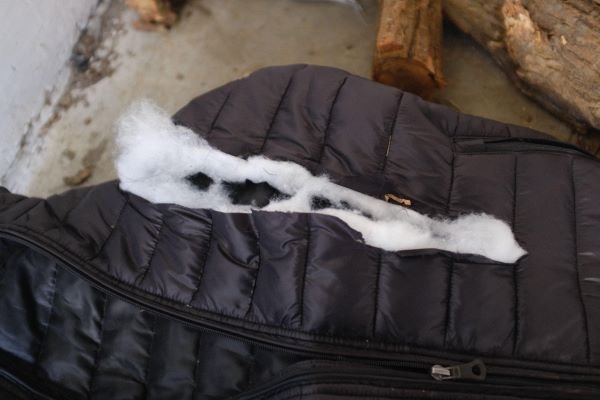“Why are you helping them? They [migrants] are coming here illegally.” A forever changing context for people on the move within Serbia.
Since the Special operation in Northern Serbia was conducted in October and November last year, the situation for people on the move has become increasingly more difficult and uncertain. As far as we can see, no informal settlements have reopened, the Reception Centre in Subotica remains closed, and only very few numbers of people are passing through the region. This, paired with a constant presence of Serbian border police and Frontex (The European Border and Coast Guard Agency) at the Hungarian border, has resulted in a very small number of people attempting to enter Hungary from Serbia. Thus, as a direct result of the special operation, the internal migration routes within Serbia have significantly altered and, as previously reported, the routes are increasingly more dangerous.
The official line is clear, when our team was stopped recently by Serbian police and Frontex staff (German representatives) while conducting an assessment at a previous work site, they were asked “Why are you helping them, they [migrants] are coming here illegally?”
Warm clothes that we left for people on the move were found destroyed.
Given this changed situation in Subotica and acting upon information shared by partner organisations and media publications, Collective Aid has been conducting assessments throughout the country in order to further understand the forever changing context and with the aim of being able to provide aid to people on the move as effectively as possible. Heading out to Obrenovac Reception Centre (Belgrade), Sjenica Asylum Centre and Tutin Asylum Centre (Montenegro border in the south), and speaking with people on the move directly, has helped to provide an insight into migration routes and the treatment that people have experienced from the authorities.
Outside of Obrenovac Reception Centre, in Belgrade, it was found that the conditions for people on the move are severe and show no sign of improving. There are reports of daily abuse from the police towards the people temporarily residing there: people being hit with batons, being forcibly moved on and told “they cannot stay there”. Even attempts to escape the harsh winter conditions through sleeping in tents or using abandoned buildings are prevented by confiscation or closure.It was also discovered, after speaking to people still located outside of Obrenovac, that approximately 200 people have been taken to Tutin and Sjenica.
Tent destroyed and left to hang in the trees on the land next to Obrenovac.
Building padlocked by authorities outside Obrenovac Reception Centre.
Obrenovac has one of the highest capacities of reception centres in the country (1000), yet it is currently only housing approximately 50 people, even though there are on average 70 people, including women and children, living outside and with severe needs. This, paired with the aforementioned ill treatment, suggests that the authorities, though they could be doing more, are actively choosing not to.
The police have reportedly refused entry to people on the move from Afghanistan into Obrenovac, accusing them of being “part of the mafia”. It was also mentioned that they were letting Arabic speaking people inside, which is a very strong case of discrimination. This could clearly exacerbate divisions between communities and add further to the psychological trauma of those seeking shelter. As a result of the conditions people usually try to leave as quickly as possible. One person (18yrs old) who we spoke to found himself being moved from Obrenovac to Sjenica and then back to Obrenovac, all within a period of a few weeks, he stated: “they (Police) play with your life” (A. Afghanistan)
The conditions at both Tutin and Sjenica appear to be at least meeting the basic needs of the people residing there. From speaking to people on the ground, it appeared that the turnover of people at both locations was significantly high, as the desire of many is to reach the EU via Bosnia, as Hungary is a very unlikely option right now. Though, given the increase in people moving from Serbia to Bosnia, on the week of the 29th of January the Serbian authorities carried out an operation at the Bosnian border which claimed to have detained 271 people on the move and taken them to centres across Serbia.
Viskova - site where people on the move were arrested as part of the ‘Operation’ at the Bosnian border.
At the time of this operation at the Bosnian border, the message from the Ministry of Internal Affairs was that they will continue to carry out operations similar to the Special Operation near Subotica.
“Bratislav Gasic pointed out that the headquarters, which were previously formed in Subotica, Preševo, Dimitrovgrad, gave exceptional results and that the newly formed headquarters in Mali Zvornik is a continuation of the extensive action to suppress irregular migration on the territory of Serbia.” (Telegraf.tv)
So why now all of a sudden? These changes can be associated with the timing of the ‘Special Operation’ and the election last year, but it can also be said with certainty that the continuation of such treatment of people on the move is directly related to the agreement of “continuous financial support of the European Union” in exchange for preventing people from passing into the EU. Serbia needs to be seen as ‘successful’ in doing so, even when the human rights of people on the move are violated, which de facto implicates the EU.
The questions that come to the surface as a result of these findings are; 1) can the Serbian authorities just continue to act without any repercussions, regardless of violations and discrimination, seemingly with the permission of the EU, as long as they are ‘strengthening their borders’? 2) And if so, what does the future for people on the move in Serbia look like?
Words: Nicholas Clifford
Photos: Dan Schooler




